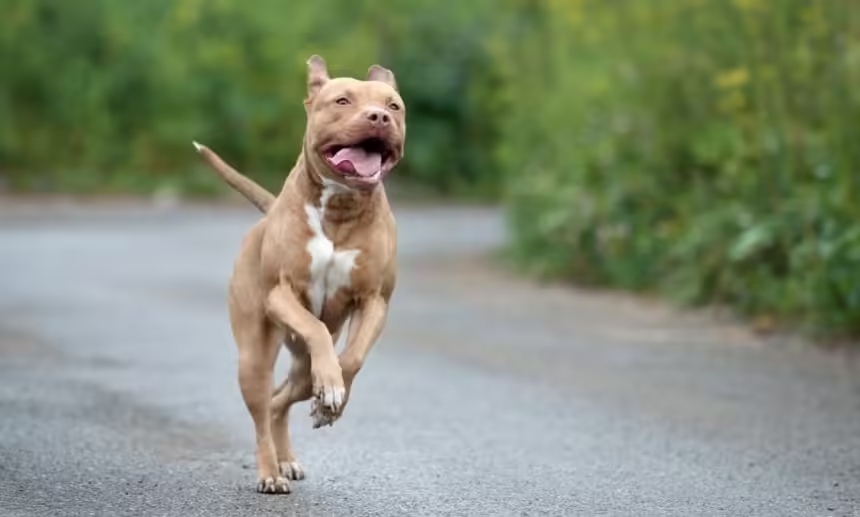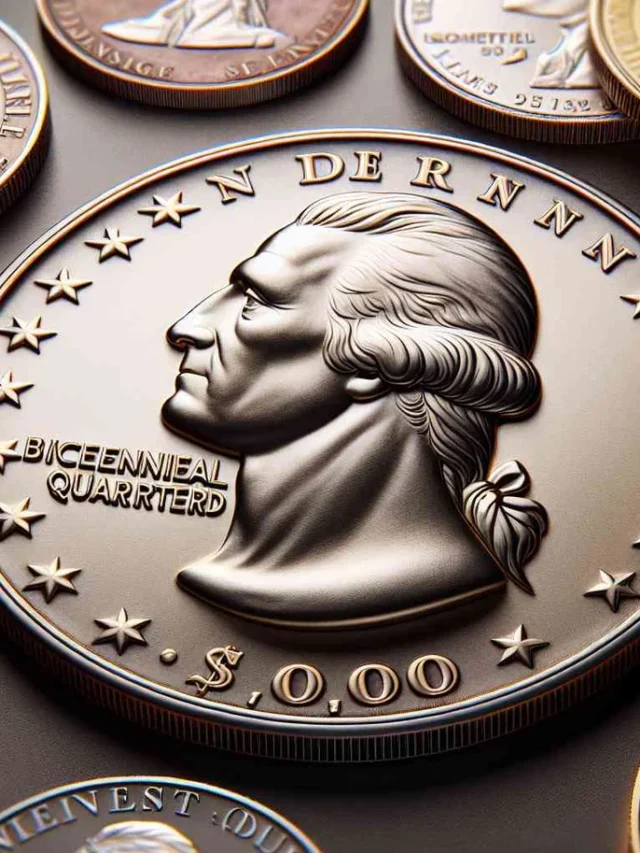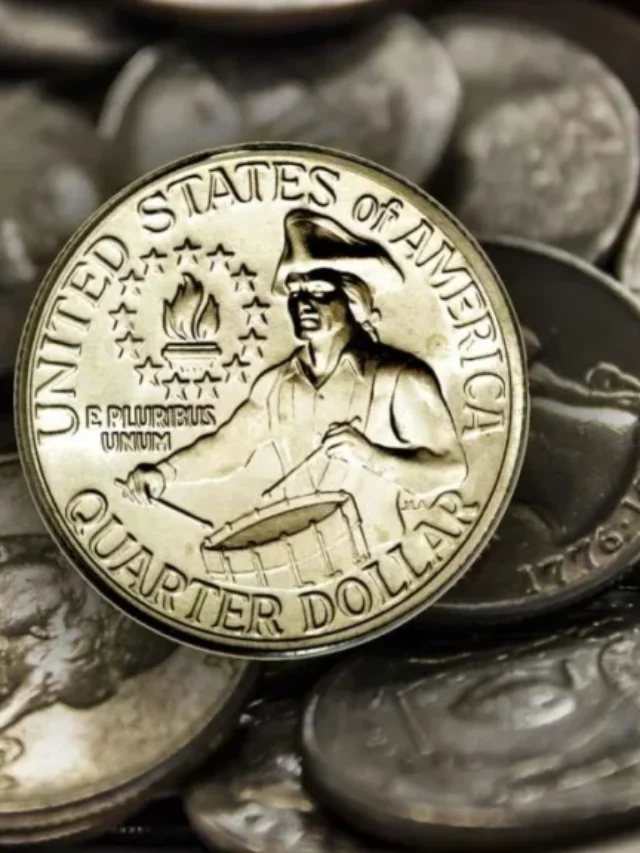Introduction:
The American Pit Bull Terrier (APBT) is a breed that has captured the hearts of many dog enthusiasts while also being surrounded by controversy and misconceptions. Known for their strength, loyalty, and affectionate nature, Pit Bulls are often misunderstood due to negative media portrayals. This article aims to provide a comprehensive overview of the American Pit Bull Terrier, covering their history, characteristics, temperament, and the importance of responsible ownership.
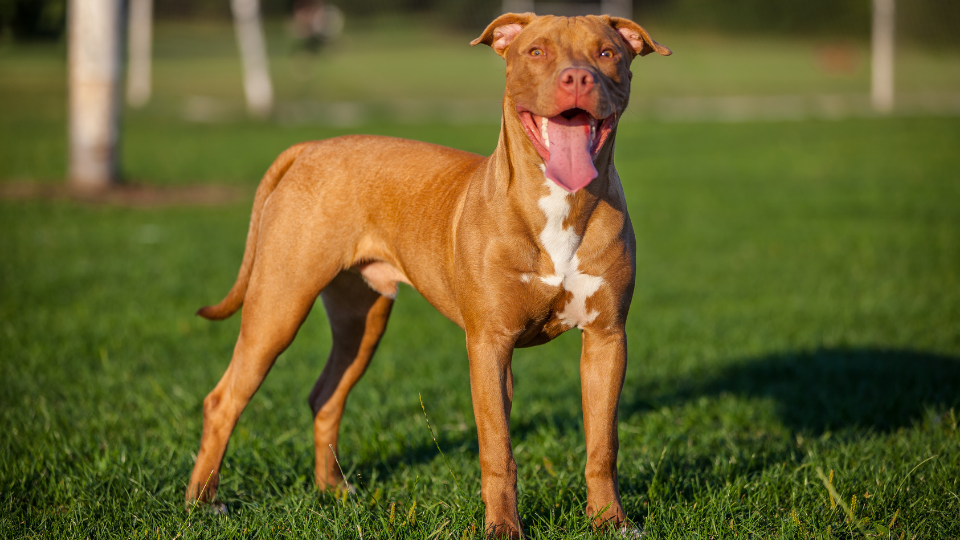
History and Origin:
The American Pit Bull Terrier traces its roots back to the 19th century in the United Kingdom. Originally bred from Old English Bulldogs and terriers, these dogs were created for bull-baiting and later for ratting and dog fighting. Immigrants brought them to the United States, where they became versatile farm dogs and loyal family companions. Despite their historical association with dog fighting, many Pit Bulls excelled as service dogs, therapy dogs, and in roles requiring intelligence and strength.
Physical Characteristics:
American Pit Bull Terriers are medium-sized, muscular dogs with a short coat that comes in a variety of colors and patterns. They typically weigh between 30 to 60 pounds and stand about 17 to 21 inches tall at the shoulder. Their distinctive features include a broad head, strong jaws, and a confident stance. Despite their powerful appearance, they are known for their agility and athleticism.
Temperament and Personality:
One of the most endearing qualities of the American Pit Bull Terrier is their affectionate and loyal nature. They are known for being excellent family pets, often forming strong bonds with their human companions. Pit Bulls are typically friendly, eager to please, and highly trainable. However, they are also known for their high energy levels and need for regular exercise and mental stimulation.

Common Misconceptions:
The American Pit Bull Terrier has faced a significant amount of negative publicity, often being portrayed as inherently aggressive. It is important to understand that behavior is largely influenced by training, socialization, and environment. Many Pit Bulls are gentle, loving, and well-behaved when raised in a positive and nurturing environment. Breed-specific legislation (BSL) targeting Pit Bulls is often based on misconceptions rather than factual evidence about the breed’s nature.
Training and Socialization:
Proper training and socialization are crucial for any dog, but especially for breeds like the American Pit Bull Terrier. Early socialization helps Pit Bulls develop into well-rounded dogs, comfortable in various situations and environments. Positive reinforcement training methods are highly effective with this breed, as they respond well to praise and rewards. Enrolling in obedience classes and providing consistent training can help mitigate potential behavioral issues.
Health and Care:
American Pit Bull Terriers are generally healthy dogs, but they can be prone to certain genetic conditions such as hip dysplasia, allergies, and skin conditions. Regular veterinary check-ups, a balanced diet, and plenty of exercise are essential for maintaining their health. Due to their short coat, they require minimal grooming, but regular brushing can help keep their coat shiny and healthy.
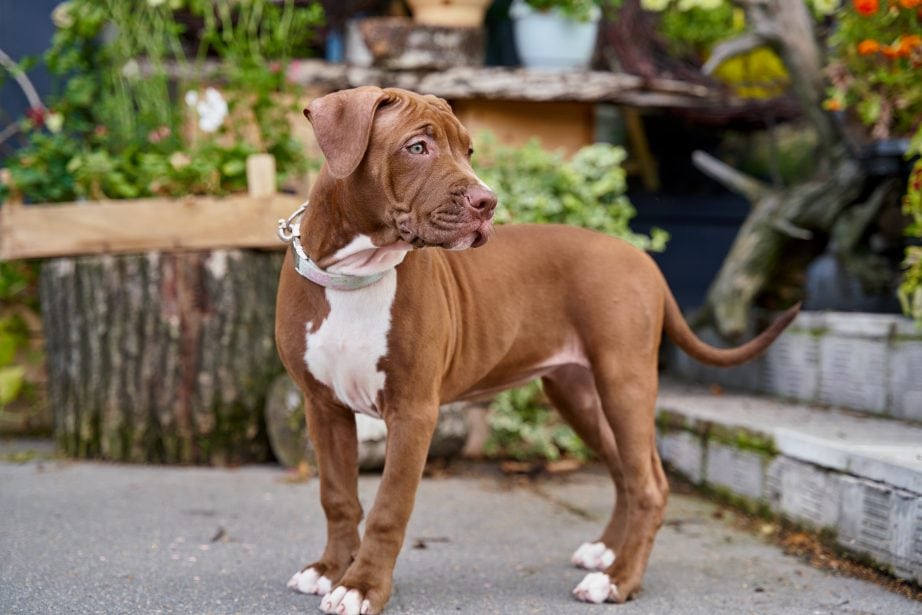
Importance of Responsible Ownership:
Owning an American Pit Bull Terrier comes with responsibilities. Prospective owners should research and understand the breed’s needs, including their requirement for regular exercise, mental stimulation, and socialization. It’s also important to be aware of local laws and regulations regarding Pit Bulls. Responsible ownership includes providing proper training, regular veterinary care, and a loving environment.
Conclusion:
The American Pit Bull Terrier is a breed that exemplifies loyalty, strength, and affection. While they have been subject to negative stereotypes, with responsible ownership and proper care, they can be wonderful family pets and companions. By educating ourselves about the true nature of Pit Bulls and advocating for responsible pet ownership, we can help dispel the myths surrounding this misunderstood breed and celebrate their many positive qualities.
FAQ: The American Pit Bull Terrier
1.What is the origin of the American Pit Bull Terrier?
The American Pit Bull Terrier originated in the 19th century in the United Kingdom, bred from Old English Bulldogs and terriers. They were initially used for bull-baiting, ratting, and dog fighting before becoming versatile farm dogs and family companions in the United States.
2.What are the physical characteristics of an American Pit Bull Terrier?
American Pit Bull Terriers are medium-sized, muscular dogs with a short coat that comes in various colors and patterns. They typically weigh between 30 to 60 pounds and stand 17 to 21 inches tall at the shoulder. They have a broad head, strong jaws, and a confident stance.
3.What is the temperament of an American Pit Bull Terrier?
Pit Bulls are known for their affectionate, loyal, and friendly nature. They are excellent family pets, forming strong bonds with their human companions. They are eager to please, highly trainable, and known for their high energy levels, requiring regular exercise and mental stimulation.
4.Are American Pit Bull Terriers inherently aggressive?
No, aggression in dogs is largely influenced by training, socialization, and environment. While some Pit Bulls have been bred and trained for fighting, many are gentle, loving, and well-behaved when raised in a positive and nurturing environment.
5.How important is training and socialization for an American Pit Bull Terrier?
Training and socialization are crucial for Pit Bulls. Early socialization helps them become well-rounded dogs, comfortable in various situations. Positive reinforcement training methods are highly effective, and consistent training can help mitigate potential behavioral issues.
